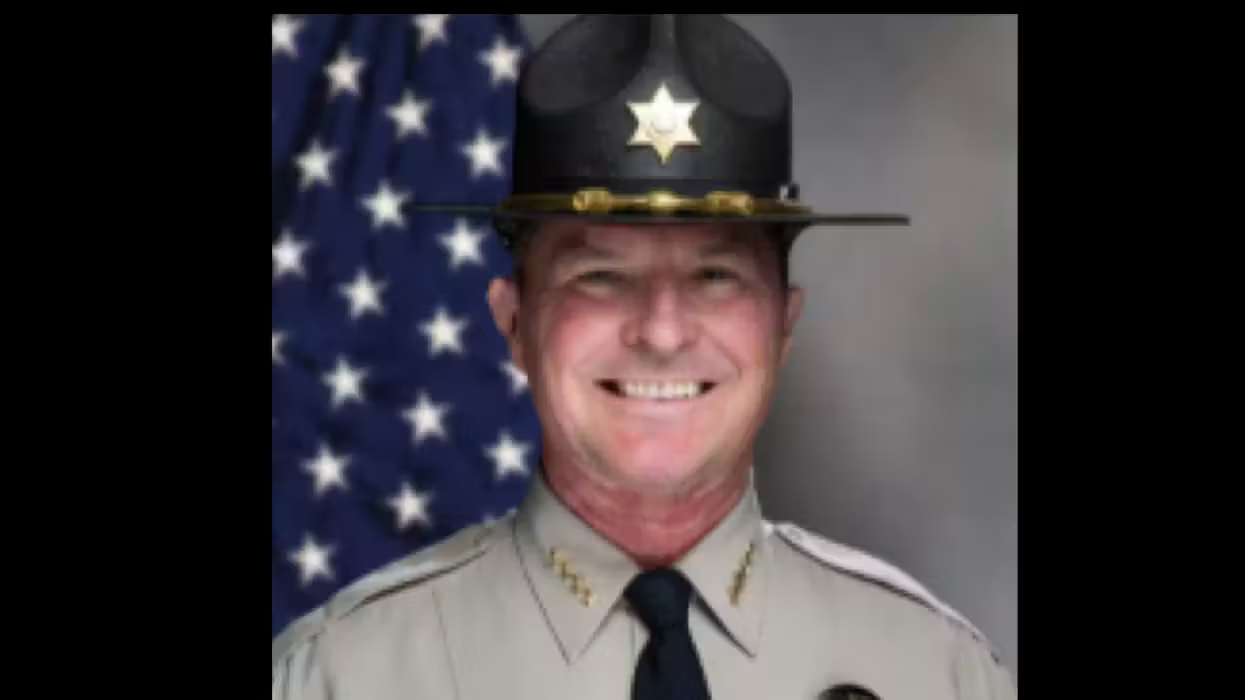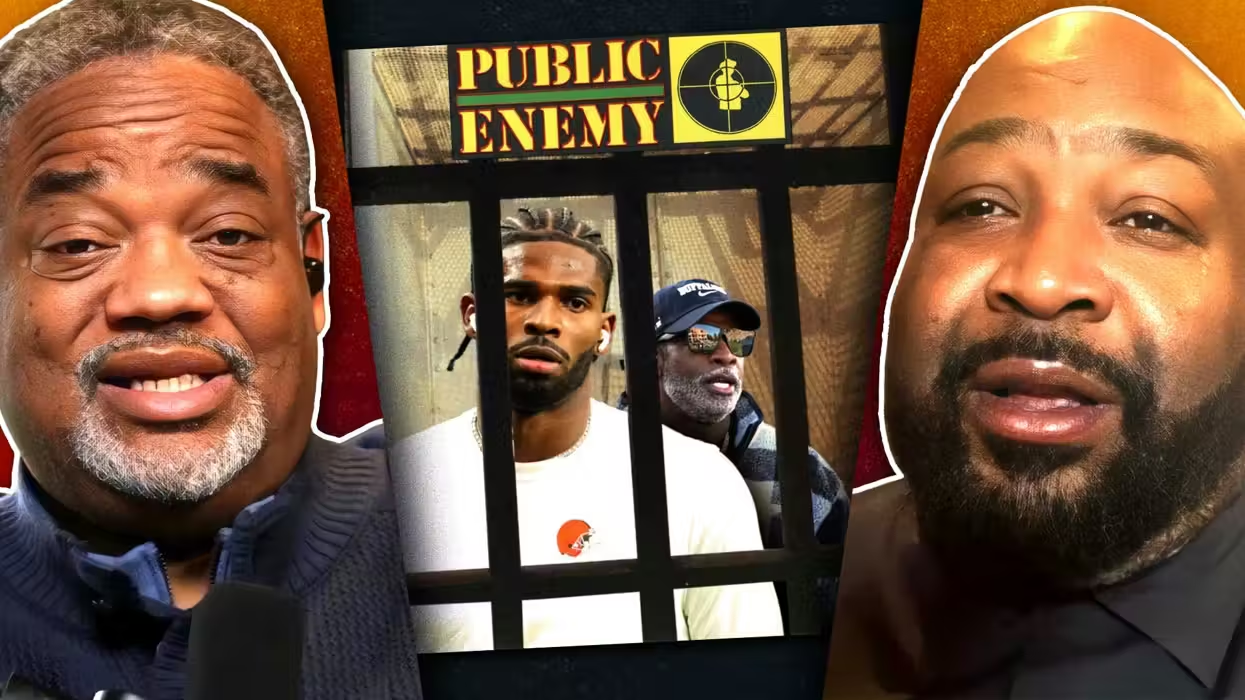In the modern-era few might know that the Republican Party started out as a pro-freedom movement whose primary platform was to abolish slavery. The Republicans "fought for human freedom," noted Glenn Beck on his Monday evening broadcast.
The movement, perhaps in earnest, began in 1856, when Massachusetts Democratic Sen. Charles Sumner gave his famed speech, "the Crime Against Kansas," which was an unabashed condemnation of slavery. During his speech, however, Sumner personally slighted fellow Democratic Senator Andrew Butler, whose cousin, some historians have noted, ended up beating Sumner nearly to death. Three years later, astonishingly, Sumner returned to the senate floor to finish his famed speech.
This was his famed "Crime Against Kansas" speech and it was upon this nascent idea of Civil Rights that the Republican Party was founded.
Beck juxtaposed Sumner's position to stand up for what is right and the ensuing beating he received with attacks made by Sen. John McCain and other lawmakers on Sen. Rand Paul following the freshman's recent filibuster. "His allegiance was not to Republicans, but to human freedom," Beck noted.
Those who stand with Rand, Beck said, "will come under attack because they will put principles over party."
"Which one will win in the end?" asked Beck.
"A historic movement has begun. You were here to hear the heartbeat when the tea party started, and last week you witnessed the birth," he added.
[mlbvideo content_id=25710095]
So did Paul's filibuster mark a turning point for the Republican Party? Beck believes this was a "watershed moment" in national politics that could actually give way to the birth of a new party, or, at the least, a completely different GOP.
"Events like these can mark great things to come," Beck explained before sharing his belief that a new movement could very well be in store.
In terms of predictions, Beck noted that during the election of 1901, Teddy Roosevelt came to office and "infected our country ever since." But a "new alliance has been born and it started last week."
He believes that Paul's filibuster was important because it "grabbed the American people by the collar" to show them that they were handing their rights away.
During his filibuster, Paul acknowledged that he could never win as he hadn't enough votes, but that he wanted to hold the administration accountable, and make it answerable, to what he and a broad contingent of Americans believe is a violation of the Bill of Rights.
While drones may have been the vehicle Paul used to convey his point, Beck believes it was just the tip of the iceberg. He also said that never before had he seen establishment-Republicans band together to publicly blast a fellow Republican.
[mlbvideo content_id=25710597]
Beck said that a coalition based on freedom is being formed in America. "When the tea party stood against big government due to 'natural rights' they called the movement 'crazy,'" he noted before explaining that citizens had simply had enough under Bush and believed that Obama was not going to be any different in terms of growing government under progressive policies.
Progressives are bringing us to a modern era of "slavery," Beck said but with the popularity of Paul's stance -- even among liberal Democrats -- standing with the constitution has proven to be truly bipartisan.
[mlbvideo content_id=25710703]
For reference, excerpts from Sen. Sumner's famed speech, given at the United States Senate, 19-20 May 1856, follow below:
MR. PRESIDENT
[...] Take down your map, Sir, and you will find that the Territory of Kansas, more than any other region, occupies the middle spot of North America, equally distant from the Atlantic on the east and the Pacific on the west, from the frozen waters of Hudson's Bay on the north and the tepid Gulf Stream on the south, -- constituting the precise geographical centre of the whole vast Continent. To such advantages of situation, on the very highway between two oceans, are added a soil of unsurpassed richness, and a fascinating, undulating beauty of surface, with a health-giving climate, calculated to nurture a powerful and generous people, worthy to be a central pivot of American institutions. A few short months have hardly passed since this spacious Mediterranean country was open only to the savage, who ran wild in its woods and prairies; and now it has drawn to its bosom a population of freemen larger than Athens crowded within her historic gates....
Against this Territory, thus fortunate in position and population, a Crime has been committed which is without example in the records of the Past. Not in plundered provinces or in the cruelties of selfish governors will you find its parallel....
The wickedness which I now begin to expose is immeasurably aggravated by the motive which prompted it. Not in any common lust for power did this uncommon tragedy have its origin. It is the rape of a virgin Territory, compelling it to the hateful embrace of Slavery; and it may be clearly traced to a depraved desire for a new Slave State, hideous offspring of such a crime, in the hope of adding to the power of Slavery in the National Government. Yes, Sir, when the whole world, alike Christian and Turk, is rising up to condemn this wrong, making it a hissing to the nations, here in our Republic, force -- ay, Sir, FORCE -- is openly employed in compelling Kansas to this pollution, and all for the sake of political power. There is the simple fact, which you will vainly attempt to deny, but which in itself presents an essential wickedness that makes other public crimes seem like public virtues.
This enormity, vast beyond comparison, swells to dimensions of crime which the imagination toils in vain to grasp, when it is understood that for this purpose are hazarded the horrors of intestine feud, not only in this distant Territory, but everywhere throughout the country. The muster has begun. The strife is no longer local, but national. Even now, while I speak, portents lower in the horizon, threatening to darken the land, which already palpitates with the mutterings of civil war....
Such is the Crime which you are to judge. The criminal also must be dragged into the day, what you may see and measure the power by which all this wrong is sustained. From no common source could it proceed. In its perpetration was needed a spirit of vaulting ambition which would hesitate at nothing; a hardihood of purpose insensible to the judgment of mankind; a madness for Slavery, in spite of Constitution, laws, and all the great examples of our history; also consciousness of power such as comes from the habit of power; a combination of energies found only in a hundred arms directed by a hundred eyes; a control of Public Opinion through venal pens and a prostituted press; an ability to subsidize crowds in every vocation of life, -- the politician with his local importance, the lawyer with his subtle tongue, and even the authority of the judge on the bench, -- with a familiar use of men in places high and low, so that none, from the President to the lowest border postmaster, should decline to be its tool: all these things, and more, were needed, and they were found in the Slave Power of our Republic. There, Sir, stands the criminal, unmasked before you, heartless, grasping, and tyrannical, with an audacity beyond that of Verres, a subtlety beyond that of Machiavel, a meanness beyond that of Bacon, and an ability beyond that of Hastings. Justice to Kansas can be secured only by the prostration of this influence; for this is the Power behind -- greater than any President -- which succors and sustains the Crime....
Such is the Crime and such the criminal which it is my duty to expose; and, by the blessing of God, this duty shall be done completely to the end. But this will not be enough. The Apologies which, with strange hardihood, are offered for the Crime must be torn away, so that it shall stand forth without a single rag or fig-leaf to cover its vileness. And, finally, the True Remedy must be shown....
The speech can be read in its entirety here.







